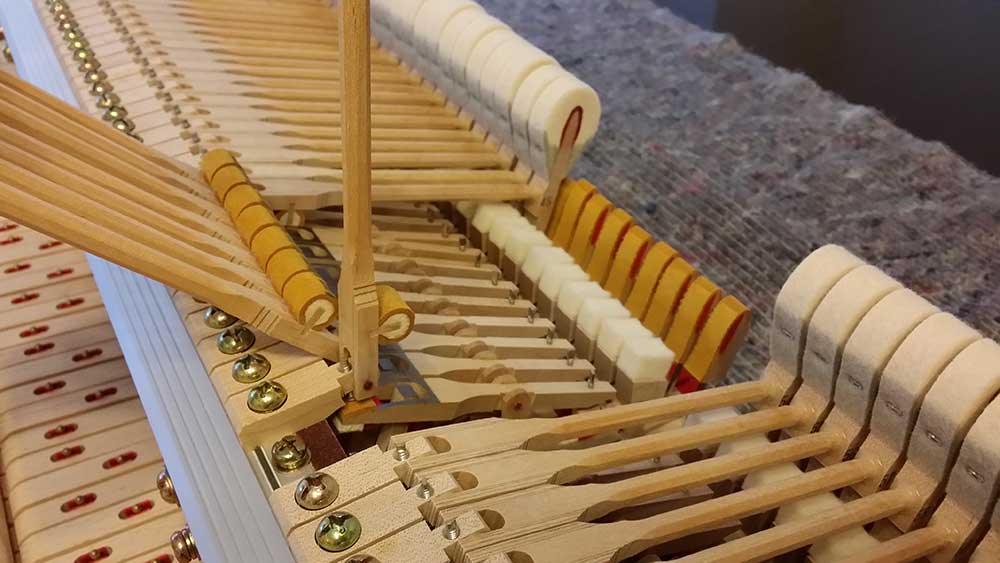How to Maintain Pianos:
A piano is one of those things that can bring a lifetime of entertainment to a family. However, a piano is an investment that you have to look after and it is important to know how to maintain pianos, otherwise the condition can deteriorate. It is not necessary to have to keep replacing a piano, unless you are stepping up in quality. Instead, preserving it is the best thing to do and aim for. Taking care of your piano is simple; here are few steps that you can follow.
Taking Care of Your Piano’s Wood Finish:
The wood of your piano is easily taken care of. As with all the wood furniture at your home, you would not want drinks and other liquids to spill all over your piano’s wood exterior; so the first rule is to keep liquid and drinks away from your piano. You should also make sure that your piano is protected from dust.
Cleaning a piano is not a tedious task; you just have to routinely wipe it with a dry or slightly damp cloth. The older the piano is the more it would benefit from occasional wood polishing, which you can call an expert for them to do it for you. If your piano has a modern polyester finish then this will only require an occasional wipe down with a damp cloth. You can also use a household furniture polish, just ensure the polish does not contain wax.
How to Prevent Humidity From Ruining Your Piano:
Weather, especially extreme weather is your piano’s most harmful and worst enemy. If it is overly dry this will cause your piano’s pitch to go flat. Extreme dryness in the weather can also cause the joints of your piano to break and ruin the other wooden parts of your piano entirely. If there is an accumulation of moisture in your piano then the pitch turns horribly sharp. Not only will moisture affect your piano’s pitch, it can also cause rusting in your piano’s strings. Humidity can crack and distort your piano’s soundboards as well. Therefore, it is advisable to keep your piano in a room where you have a relative control over the weather conditions and room temperature. The best room temperature for a wooden piano is around 65-70 degrees F and 44% humidity.
During months where you will be using your central heating more often you can add a humidifier in the room where you keep your piano. This will help regulate the extremely high and low humidity levels in the room and protect the wood of your piano. Also it is important to note that a modern piano will cope with central heating and underfloor heating a lot better than an older piano.
The Importance of Piano Voicing:
Your piano may require a voicing service every now and then. Voicing service will adjust the tone of your piano as the hammers wear over time and the voice and pitch of your piano will get affected. Voicing of your piano’s hammers will help ensure that your piano’s tone and tune are full and in pitch throughout its entire scale. A well voiced piano has a wide dynamic range. That is the optimal condition that you want to use and have your piano in.
Hopefully this article has helped you to understand more about how to maintain pianos.

